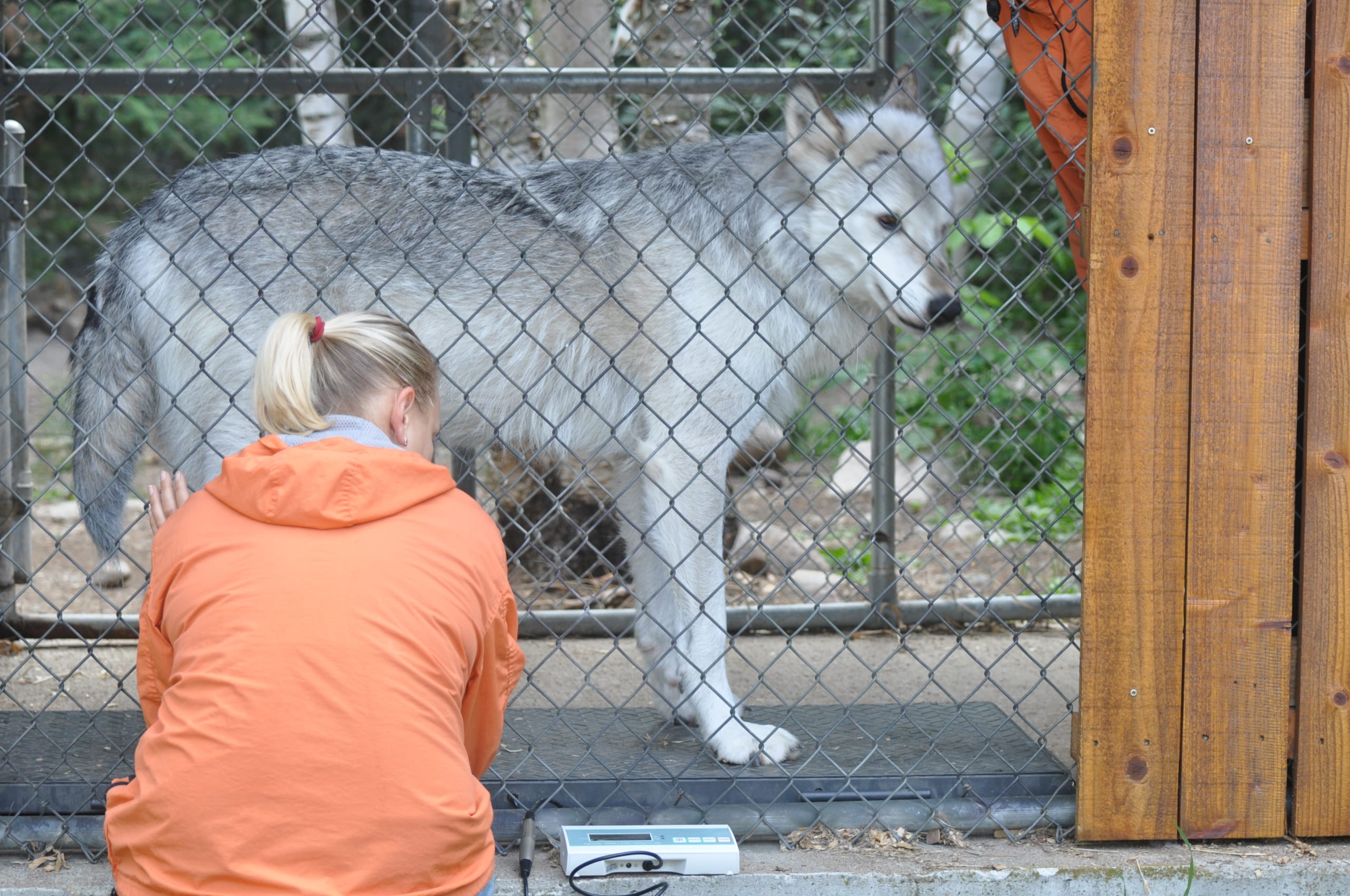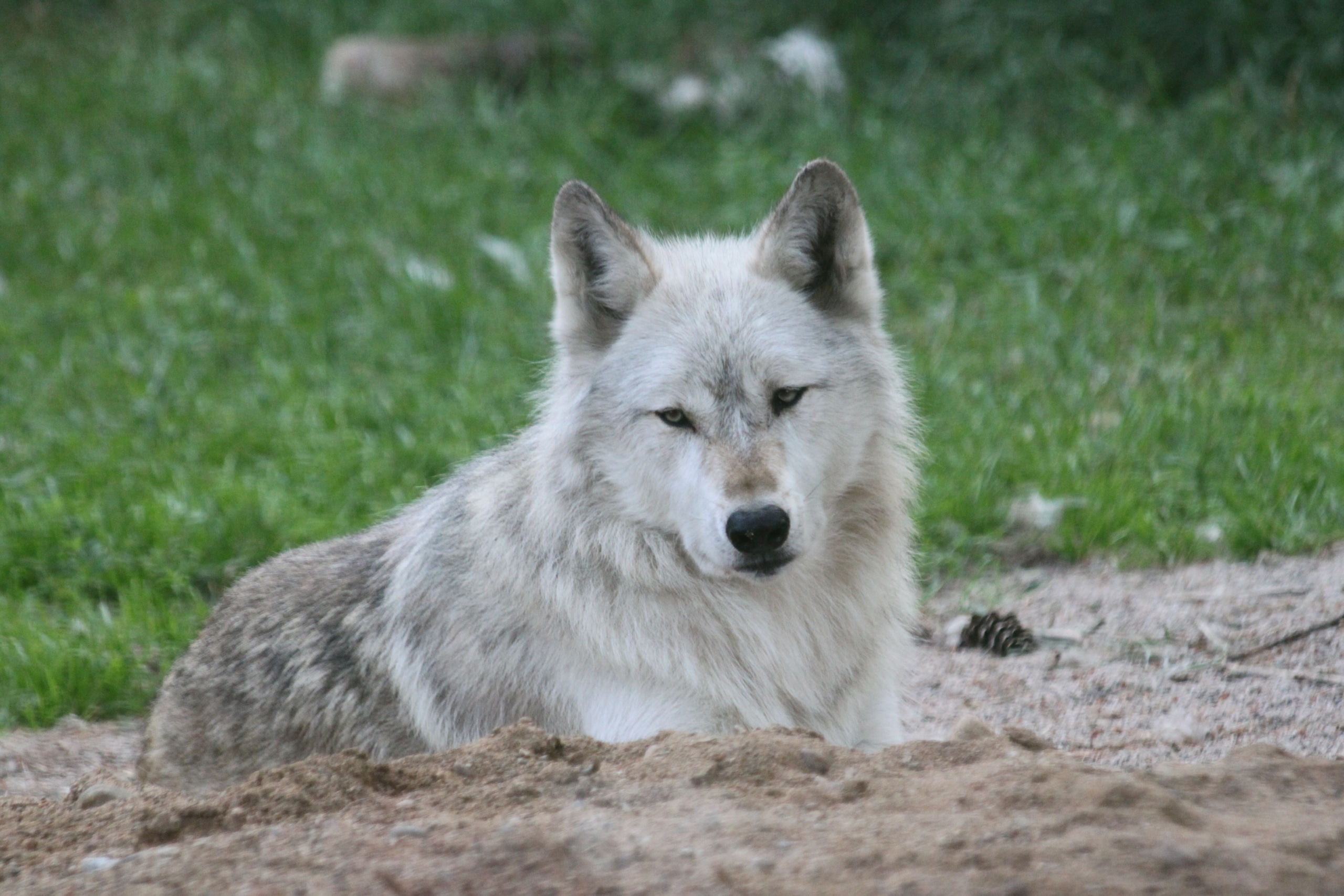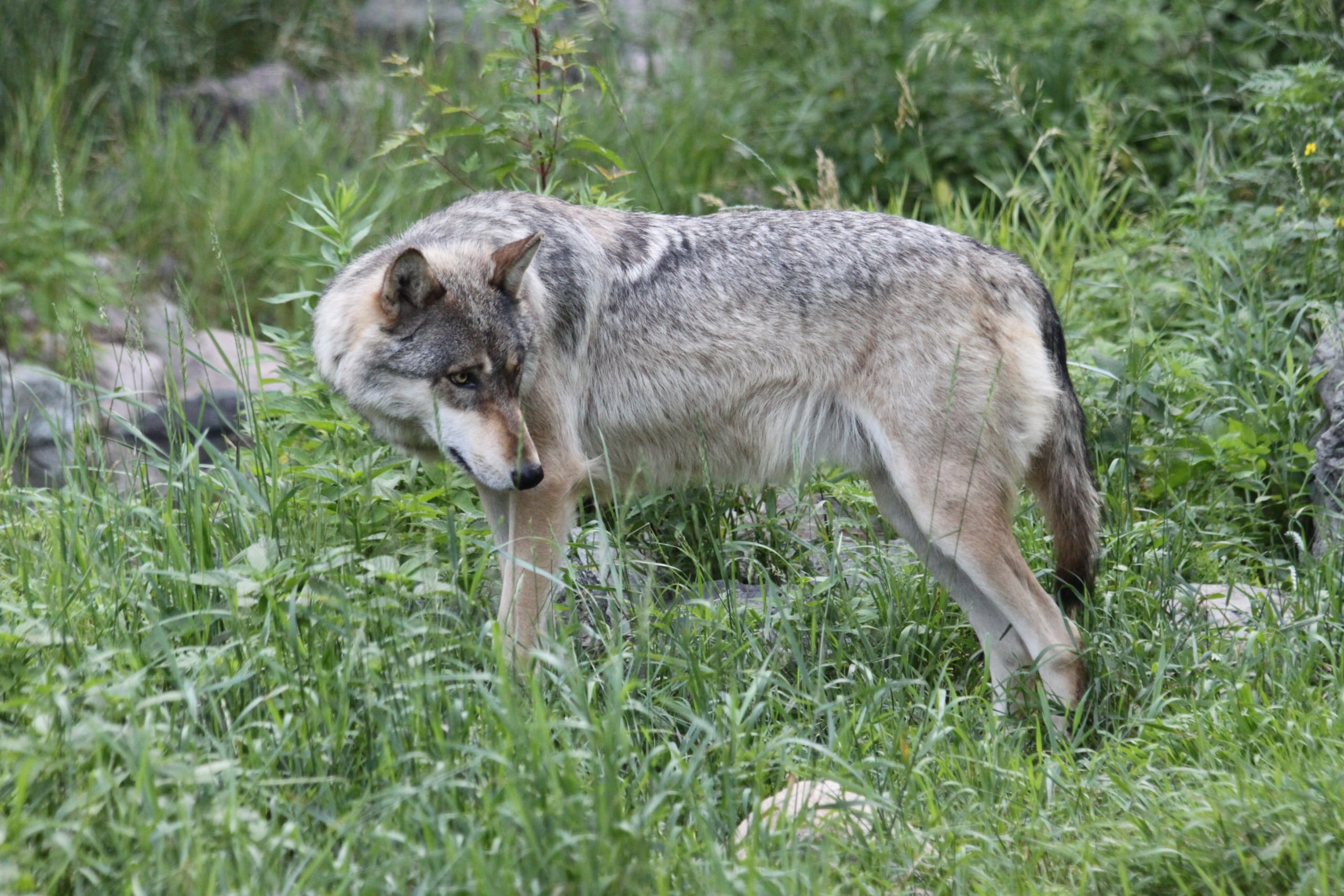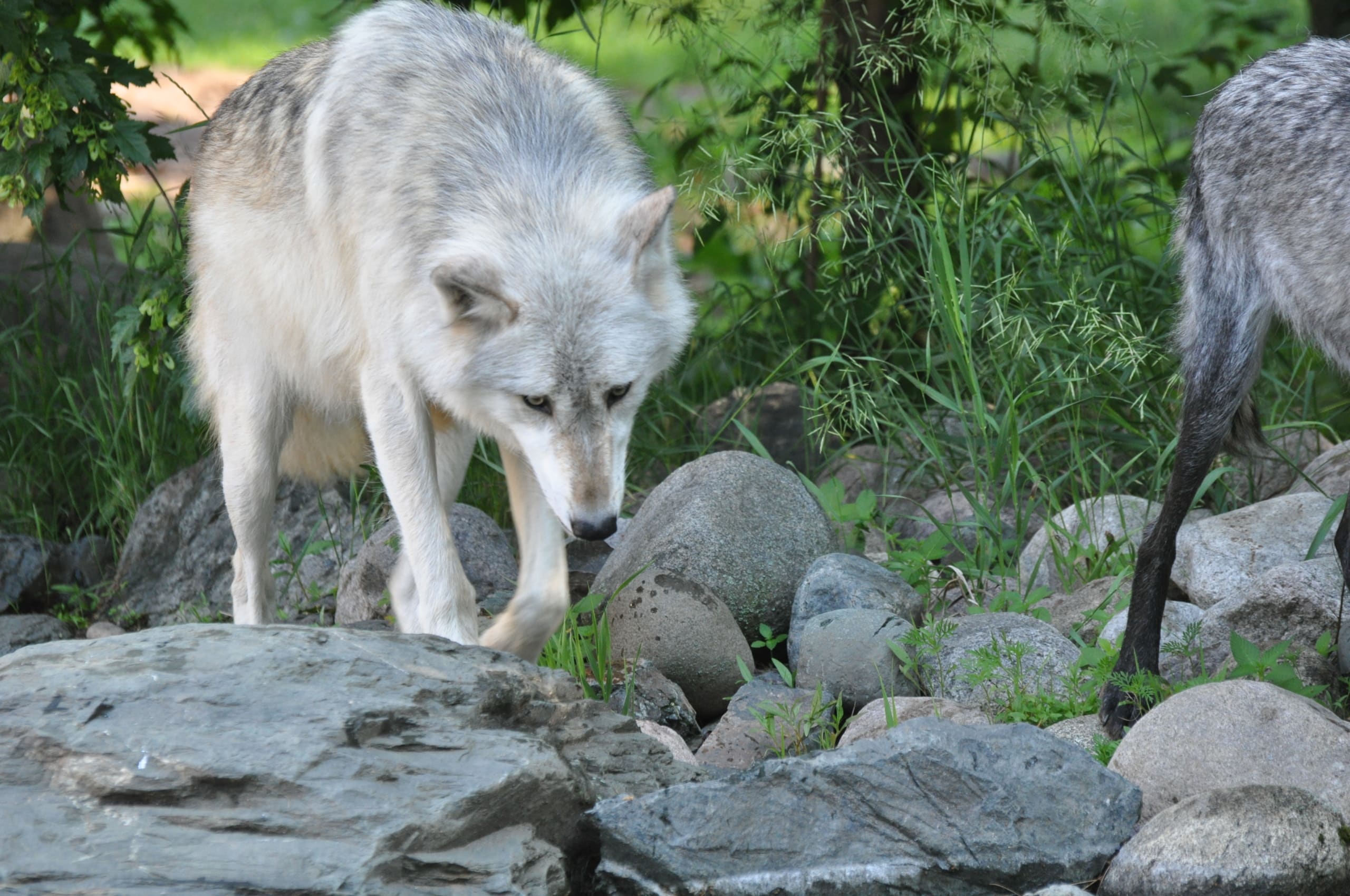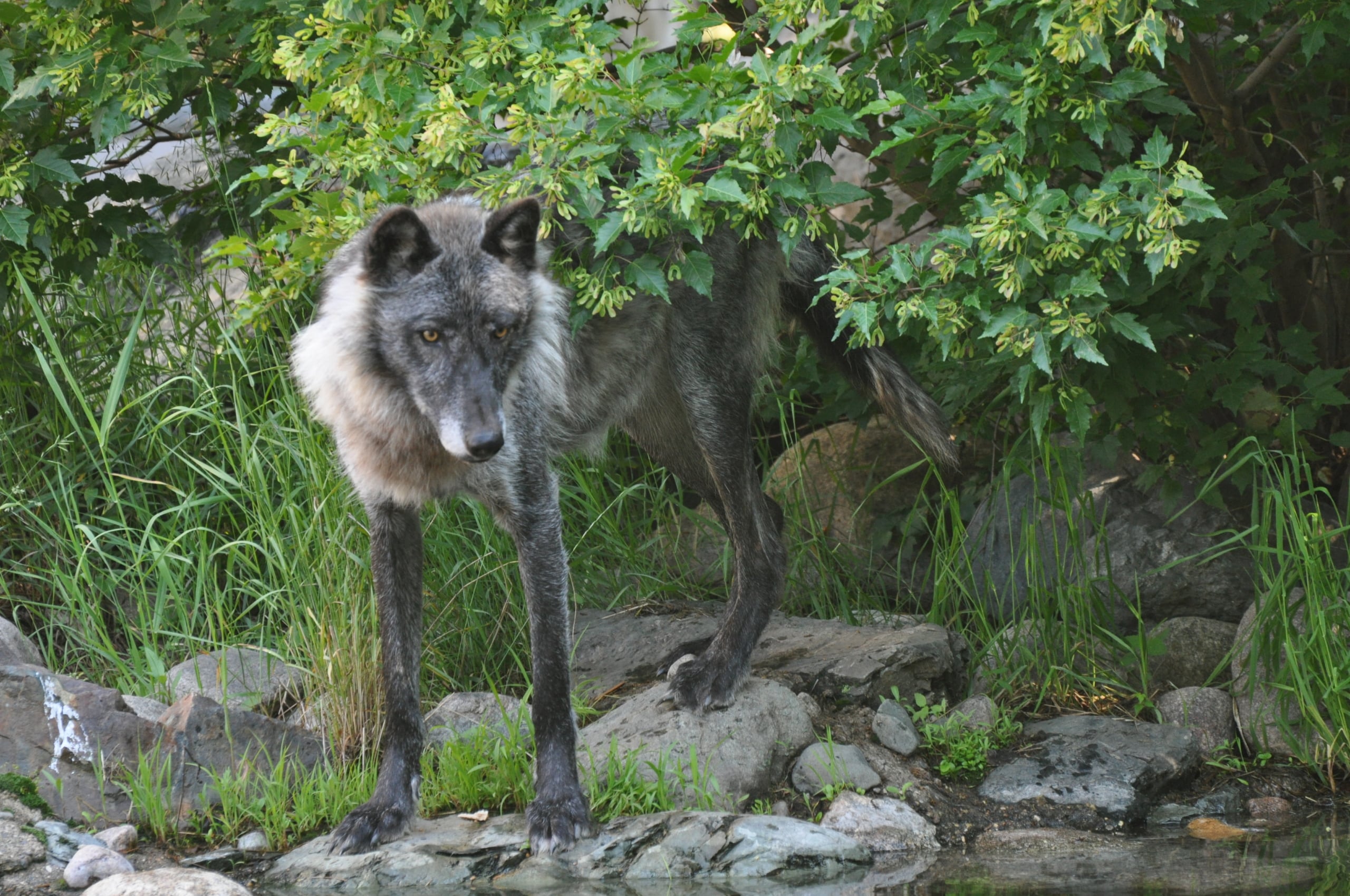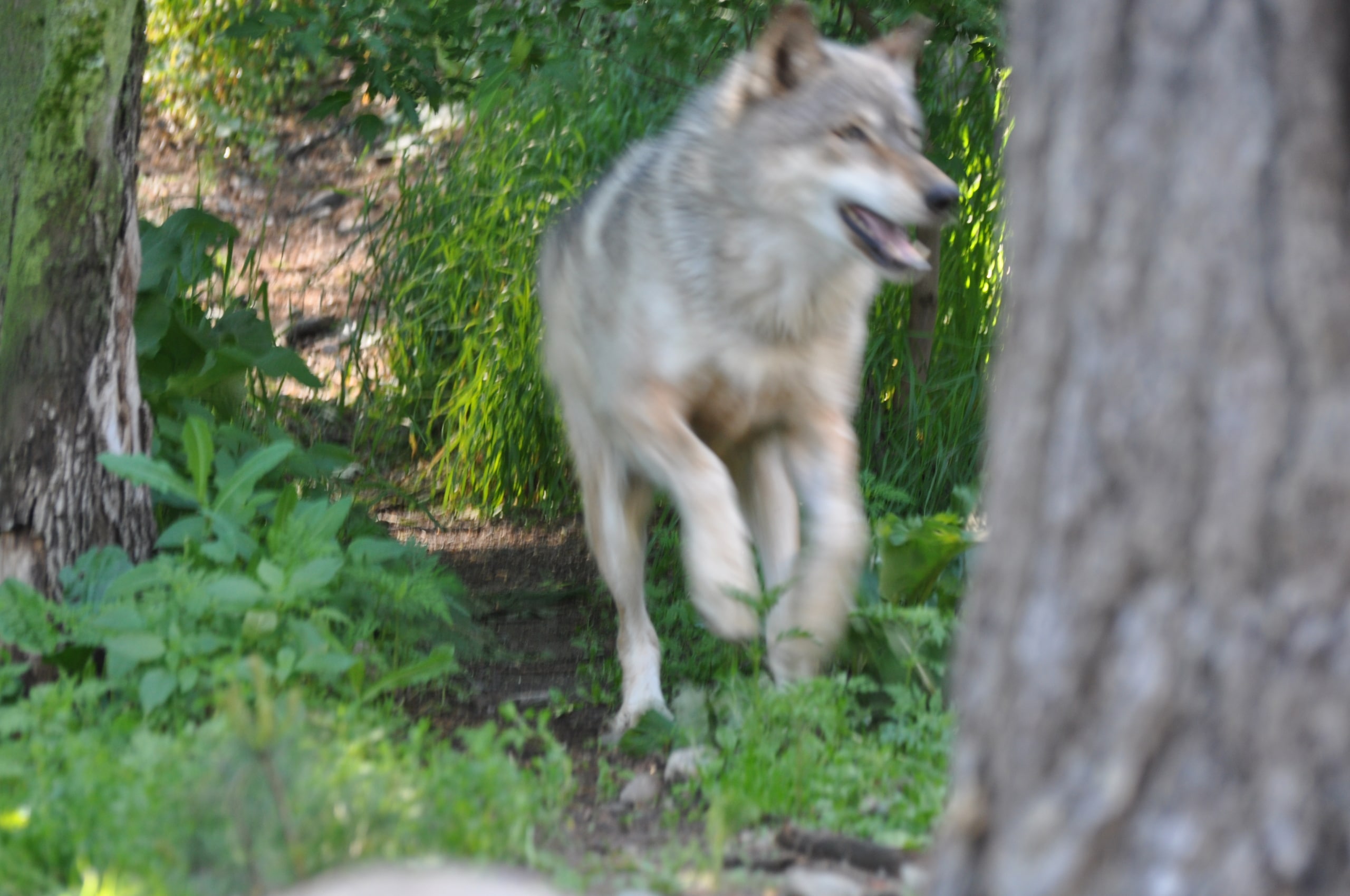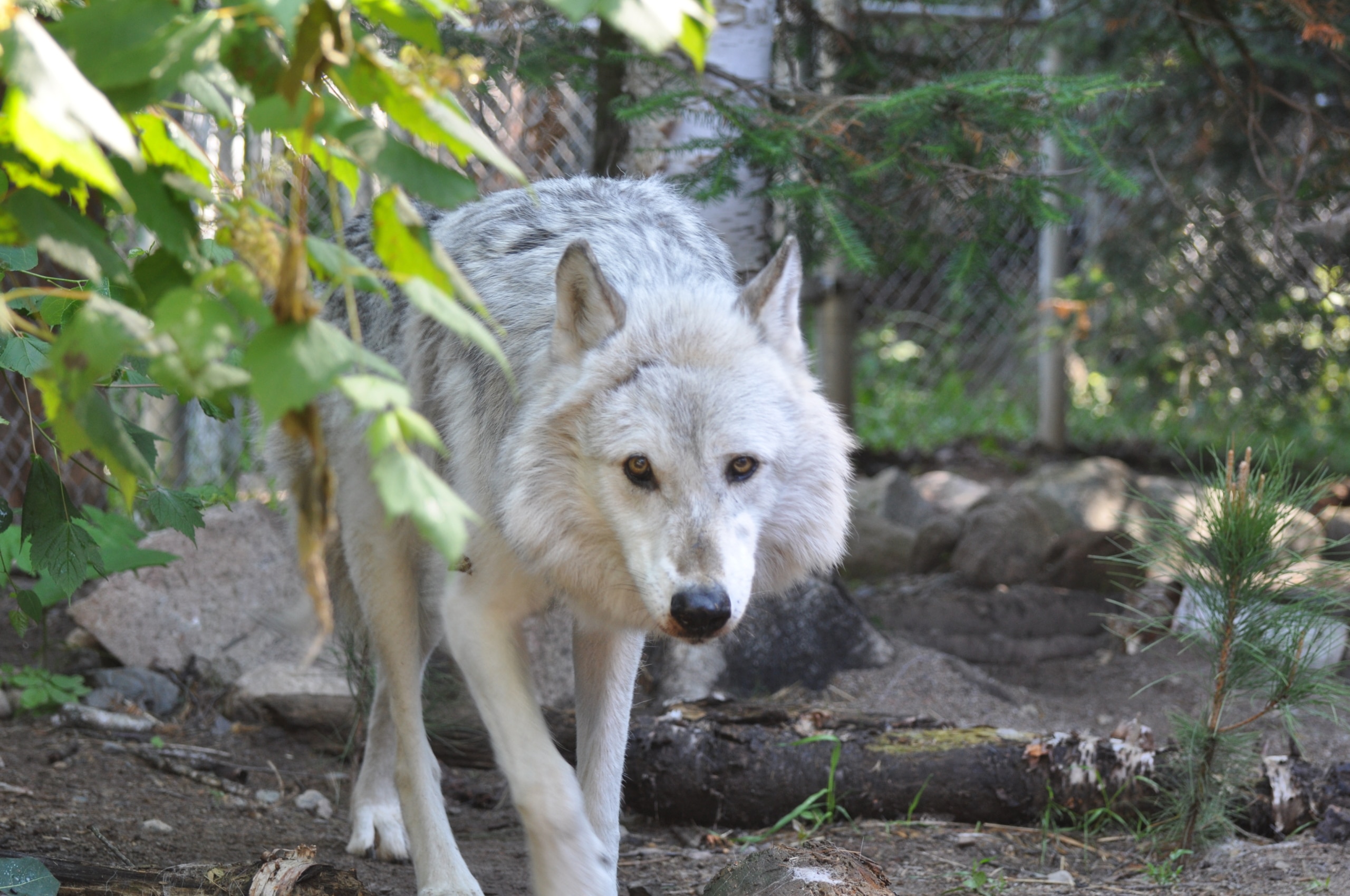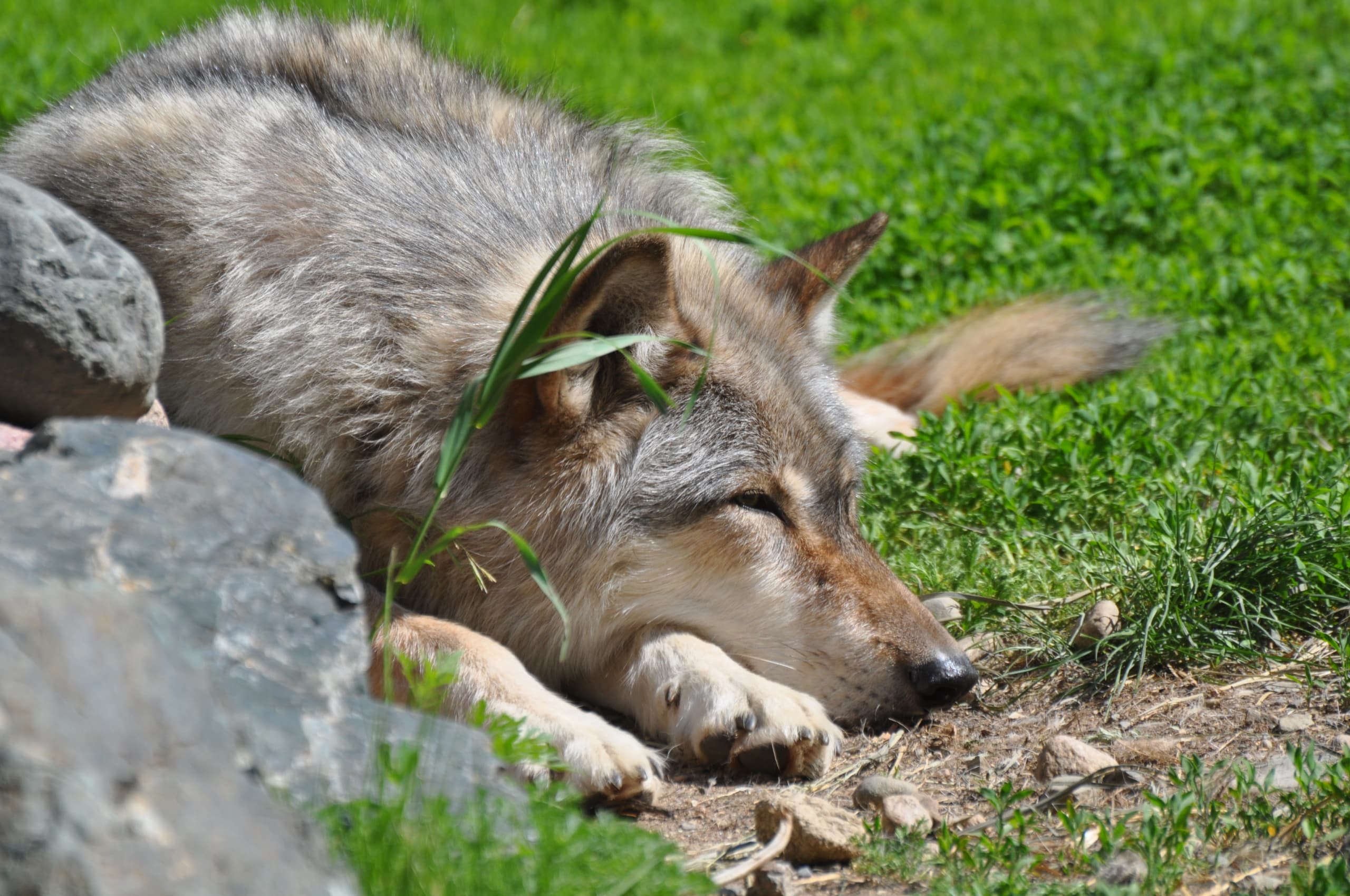I will only have time for one log post today and I thought it should be about Grizzer. As I reported last week, we were concerned about lethargy, weight loss and an overall lack of interest in socialization with staff. These were characteristics that were not typical of Grizzer. After some blood work, we discovered some low liver enzymes and with consultation from our Veterinarian, we started him on Milk Thistle, increased his vitamin B and have transitioned him to a daily feeding rather than the large carcass gorging pattern characteristic of wolves in the wild or the Exhibit Pack feedings (you may recall, we did the same for Shadow and Malik in retirement). We are happy to report that his blood work today showed an improvement in liver enzymes, he loves his daily feedings (we added coconut oil for amino acids) and he still gets a special Saturday night carcass, it just happens to be a chicken carcass. Most importantly, the Grizzer attitude is back. When Grizzer is feeling good, he is animated (play bows, Grizzer 500’s or as he ages 250’s), vocal (yes, he talks back), rolls over, demands staff time and is indignant when we leave. For the last few weeks, he would barely greet, so we are more than happy to see him feeling good. Here is is weight progression, we will continue to weigh him every two weeks:
| 6/13/2014 |
Grizzer |
55.8 kg or 123.0 lbs |
| 5/1/2015 |
Grizzer |
50.8 or 111.9 lbs |
| 6/12/2015 |
Grizzer |
52 or 114.4 lbs |
| 6/26/2015 |
Grizzer |
53.4 or 117.73 |

